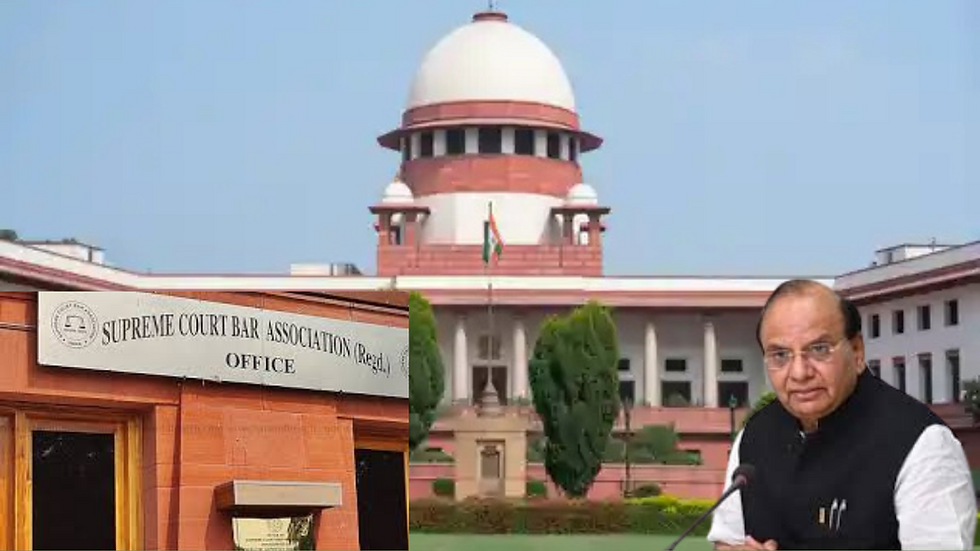The Supreme Court of India is set to hear a major challenge to the Bar Council of India's (BCI) recent decision to impose a three-year moratorium on the establishment of new law colleges. The court's
- JainSir Classes
- Aug 23
- 2 min read
The Supreme Court asked the Bar Council of India (BCI) to respond to a petition against its three-year ban on opening new law colleges. The plea argues that the moratorium is unfair, unconstitutional, and harmful to aspiring law students.

NEW DELHI: The Supreme Court of India on Friday issued a notice to the Bar Council of India (BCI) seeking its reply on a petition that has challenged the three-year moratorium on setting up new law colleges across the country.
A Bench comprising Justice Vikram Nath and Justice Sandeep Mehta was hearing a petition filed by advocate Jatin Sharma.
The challenge was directed against the:
Rules of Legal Education, Moratorium (Three-Year Moratorium) with respect to Centres of Legal Education, 2025.
The BCI had introduced these rules claiming that the move was necessary to control the rapid mushrooming of substandard institutions and to protect the overall quality and credibility of legal education in India.
According to the BCI’s official press release dated August 13, during this three-year period, no law college or university would be allowed to add new courses, sections, or batches unless it had the prior approval of the Council.
The BCI stated:
“All such proposals, if considered at all, will be subjected to strict scrutiny and ongoing compliance reviews. Pending applications that have not received final approval as on the commencement date will not be affected and shall be processed in accordance with law.”
The petition before the Supreme Court argued that the moratorium is arbitrary, excessive, and violative of Articles 14, 19(1)(g), and 21 of the Constitution. It pointed out that such a blanket ban prevents deserving students from getting access to legal education and unfairly punishes those institutions that follow the rules.
The petitioner argued that instead of imposing a blanket freeze, the BCI should adopt targeted, transparent, and region-specific measures to identify and act against weak institutions, while still allowing genuine new law colleges to come up.
The petition highlighted that the real causes of declining education quality are issues like mass cheating in exams, poor enforcement of attendance requirements, and commercialization of postgraduate (LL.M.) and doctoral (Ph.D.) degrees.
It said that these issues can be better handled through strict inspections and stronger accountability of universities, not by banning new institutions altogether.
The plea further submitted:
“Rather than exercising its statutory powers under Sections 7(1)(h) and 49 of the Advocates Act to inspect, supervise, and take punitive measures against delinquent institutions and individuals, the respondent BCI has chosen to impose a sweeping embargo on all new law colleges, a measure which lacks any rational nexus with the professed objective… and undermines competition and innovation in the education sector.”
The petitioner suggested that the BCI should reform its Legal Education Committee and Curriculum Development Committee by including sitting or retired judges, senior advocates, and academicians to ensure better policy decisions.
It was also recommended that there should be regular inspections, tighter compliance checks, and proportionate punishments such as limiting student intake or derecognising non-compliant institutions instead of punishing all institutions equally.
The plea particularly stressed that new law colleges should be encouraged in aspirational, tribal, and underserved districts to improve access to legal education across India and to reduce the imbalance between developed and underdeveloped regions.
The petition was filed through advocate Vairawan AS.



Comments